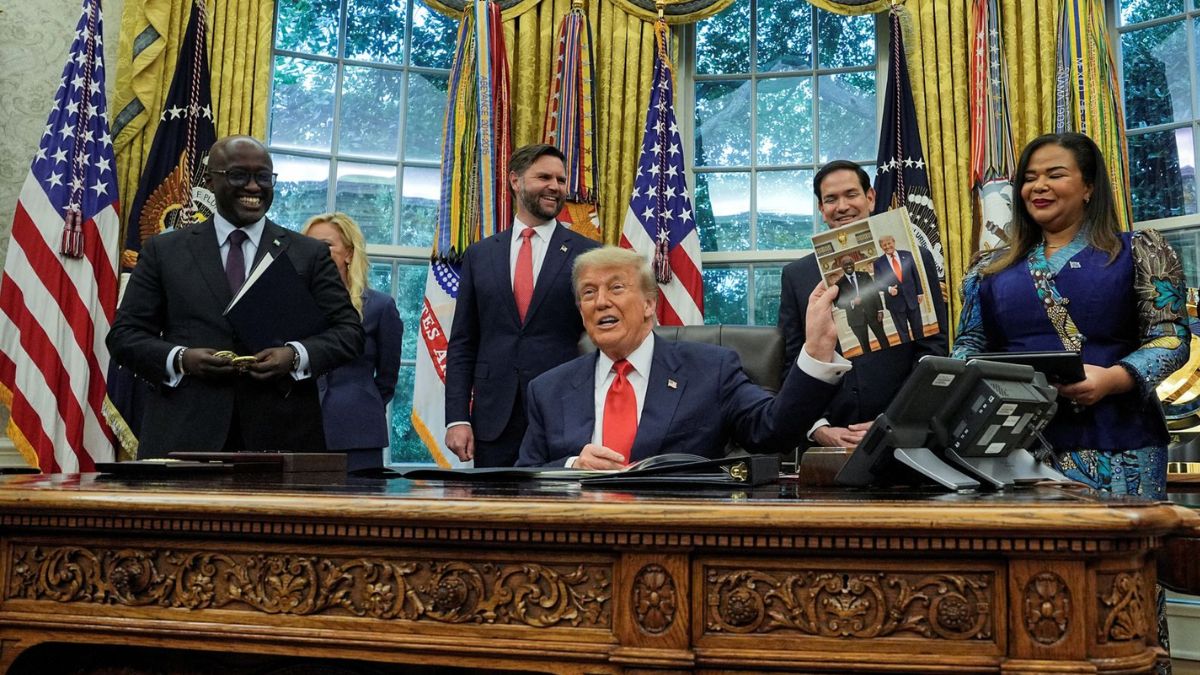The Democratic Republic of Congo and Rwanda will not sign the expected economic framework this week, sources told Reuters on Friday, dealing a setback to the Trump administration’s efforts to implement a peace deal and attract Western investment to the region.
President Donald Trump has sought to broker peace and encourage billions of dollars in investment in the mineral-rich eastern Congo after Rwanda-backed M23 rebels captured two major cities earlier this year, the most serious threat to Kinshasa in two decades.
Despite claims that the conflict is over, the June peace agreement reached in Washington has faced hurdles, with Congo’s army and M23 rebels reinforcing positions and accusing each other of violating terms.
The Regional Economic Integration Framework (REIF), expected to be initialled after final negotiations in Washington, was not signed because Kinshasa refused to approve the agreement, a Rwandan official said. Another source indicated Congo will only sign once 90% of Rwandan troops have withdrawn from eastern Congo, a key condition of the broader peace deal.
“They’re going to have to get Trump on the phone,” one source said.
Congo refuses to initial US-mediated economic deal
The U.S. is trying to get the process back on track, the Rwandan official said, but the initialing was not expected to take place on Friday.
”The negotiating teams had finalized the text of the REIF agreement but disappointingly, Kinshasa decided at the last minute not to initial it,” the Rwandan official said.
Impact Shorts
More Shorts”We believe in this agreement and in the approach of the US mediation, and hope that the economic agreement will eventually be signed. The peace process must succeed,” the official added.
Congo, Rwanda and the U.S. State Department did not immediately respond to requests for comment.
”The agreement has been finalised but the Congolese had never made any secret of the fact that they would not sign as long as the Rwandan army remained on their territory. So for us, it is not a surprise,” an African diplomat said.
The Congolese and Rwandan foreign ministers on June 27 signed a peace deal in Washington, which included a pledge to implement a 2024 agreement that said Rwanda would lift its defensive measures in eastern Congo within 90 days.
Congolese military operations targeting the FDLR, a Congo-based armed group that includes remnants of Rwanda’s former army and militias that carried out the 1994 genocide, are meant to conclude over the same timeframe.
Reuters reported last month that Rwanda and Congo would begin implementing the security measures agreed under the deal on October 1, despite the initial agreement’s 90-day deadline.
Rwanda has sent at least 7,000 soldiers over the border, according to analysts and diplomats, in support of the M23 rebels.
Kinshasa and Kigali were also meant to launch the regional economic integration framework within 90 days, the Washington agreement said. The 90-day deadline fell at the end of September.
Two sources familiar with the matter said that Trump’s senior advisor for Africa, Massad Boulos, had hoped that the economic framework and other agreements would be signed by heads of state on a visit to Washington by October 23.
According to an earlier draft of the deal reported by Reuters last month, Rwanda and Congo were set to commit to work with third parties, including the U.S., to revamp their mineral supply chains and develop reforms.
Rwanda and Congo had agreed to the draft, which was then discussed by stakeholders, including the private sector, multilateral banks and others, before meeting this week for the final round of negotiations.
With inputs from agencies
)